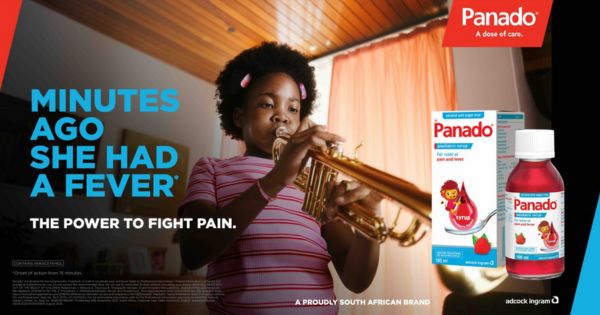It is extremely rare to find an individual whose alcohol or drug use has not impacted negatively on family or loved ones.
Chemical dependency is identified by the loss of control over an addictive substance. It is an illness that strikes randomly throughout the population. It happens to people at all income levels, of all races, any age and both genders. It does not result from a lack of willpower or loose morals. It is, however, a terrifying, destructive, progressive illness that if left unchecked results in death or disability. As with any serious illness, the family and friends of the victim are profoundly affected, often fearing the “dreaded phone call” that their loved one is in jail, the hospital or the morgue.
It’s difficult to detach emotionally and stand by while someone you love and care for is destroying their life with drugs and alcohol. This is true whether or not your loved one is estranged or living with you. When the addict is still living with his or her partner or family, it is even more difficult. Relationships and families ultimately end up attempting to adapt to the addiction.
Over time, as the illness progresses, the addict‘s life becomes more and more centered on their use of alcohol or other drugs and the relationships with significant others, friends and family members diminish and eventually deteriorate.
It is challenging to compete with addiction. Alcoholic homes are often characterized as chaotic and unpredictable. Expectations aren’t met, promises are often broken, trust is compromised, the addict becomes more isolative or secretive, and communication becomes strained and difficult. Friends and families believe that there must be something they can say or do, or not say or not do, that will result in their loved one turning their life around. As the addiction progresses, the efforts by the family and friends to help their loved one increases and the wedge between the addict and loved ones deepens.
As the addict’s life becomes more and more out of control, family members often scramble to pick up the pieces and fill in the gaps. The bills still have to be paid. The kids need to eat. The job needs to get done. Life has to go on.
So family members work harder and harder to make up for all the emotional and practical things the addict is no longer capable of tending to. As a result, the family members’ lives become more and more focused on the addict and less on themselves.
Just as the addict disregards the severity of their alcohol and other drug use, the family generally get sucked into this denial as well. Often, the alcohol and drug use progresses for some time before loved ones recognize the problem for what it is. When family begin to acknowledge the problem, they often are able to look back and recognize signs and symptoms that they previously overlooked or excused as a reaction to other stressors or circumstances in their loved one’s life. Having accommodated to the changes over time, it often requires a significant event such as a loss of employment, legal problem, or erratic behaviour to alert one to the severity.
By the time an addict seeks help, family members and loved one’s lives have been affected by the addiction.
The family need to be treated as an integral component of the treatment process in order to educate and support the entire family, including the addict, to heal and move into a recovery process.
Anyone close to someone addicted to alcohol or drugs is affected by that addiction. Friends, family members, co-workers and peers struggle with strained relationships, the desire to help the person and just figuring out how to deal with someone that seems to be on the road to destruction.
Even when that person gets into much needed treatment for their substance abuse, the remaining friends and family members need to evaluate what addiction has done to their relationships and to them.
Recovery is a common term for those that find sobriety and a new way of life, but recovery is also for the network of friends and family members around the addicted person.
When a family is dealing with drug addiction, everyone is affected. Having an addict in the family can put stress and strain on all relationships as well as the family dynamics. The addiction causes pain, frustration, and anger in all members involved. Because it does affect everyone, the need for family therapy is so important.
There are many emotions involved in a family when dealing with drug addiction. You may find yourself feeling angry toward the addict. This is normal. You wonder how this happened, why it happened, and what you could have done to stop it.
You may feel depressed and helpless, even responsible for your loved one’s addiction. This too is a normal reaction. Often when someone we love is in pain, such as the pain associated with drug addiction, we tend to look for excuses for their behaviour. We take the pain on for them and don’t make them take responsibility for their actions.
To begin with, realize that this is a huge mistake. The person with the drug addiction was the one who brought it into your family in the first place, and he or she needs to take responsibility for that. It’s not easy and will be painful for all involved, but once the addict realizes that their actions have consequences, they can take charge of their recovery fully.
Family therapy is a great way to help with drug addiction. Family and friends can play critical roles in motivating loved ones with an addiction to enter and stay in treatment. Family therapy is important. Having the involvement of family members in a person’s treatment program can strengthen and extend the benefits of the addict’s treatment program.
Trust that was lost must be built again. This is often easier said than done. Friends and family need to take a look at how they’ve all been impacted and ask themselves individually, how was I changed by this experience? What changed for the good and what changed for the bad? How do I move forward?
These are not easy questions to answer. To this end family are encouraged to start their own recovery process and learn how to be supportive of an addicted loved one while also taking care of themselves.
Imogen McIntosh provides gentle and empathetic care in a non-blaming and judgement free environment to help families understand the nature of the problem that is affecting them.
Imogen is an accredited Family Counsellor and has developed a solid reputation in the addiction and psychiatric fields for her excellent knowledge of helping families to help their loved ones and themselves.
For more information contact Imogen McIntosh on 082 2984 955, or email imogenmcintosh@gmail.com.
Have you had experience of addiction or alcoholism in your family and how did it impact on your life?
 Kaboutjie SA Mommy Blogs by Lynne Huysamen
Kaboutjie SA Mommy Blogs by Lynne Huysamen





Very informative article thanks so much
An eye-opener on the subject
Thanks for this informative article Imogen. The disease of addiction is so baffling and complex and the family feels so alone. The family sessions are very helpful in involving the family in recovery.